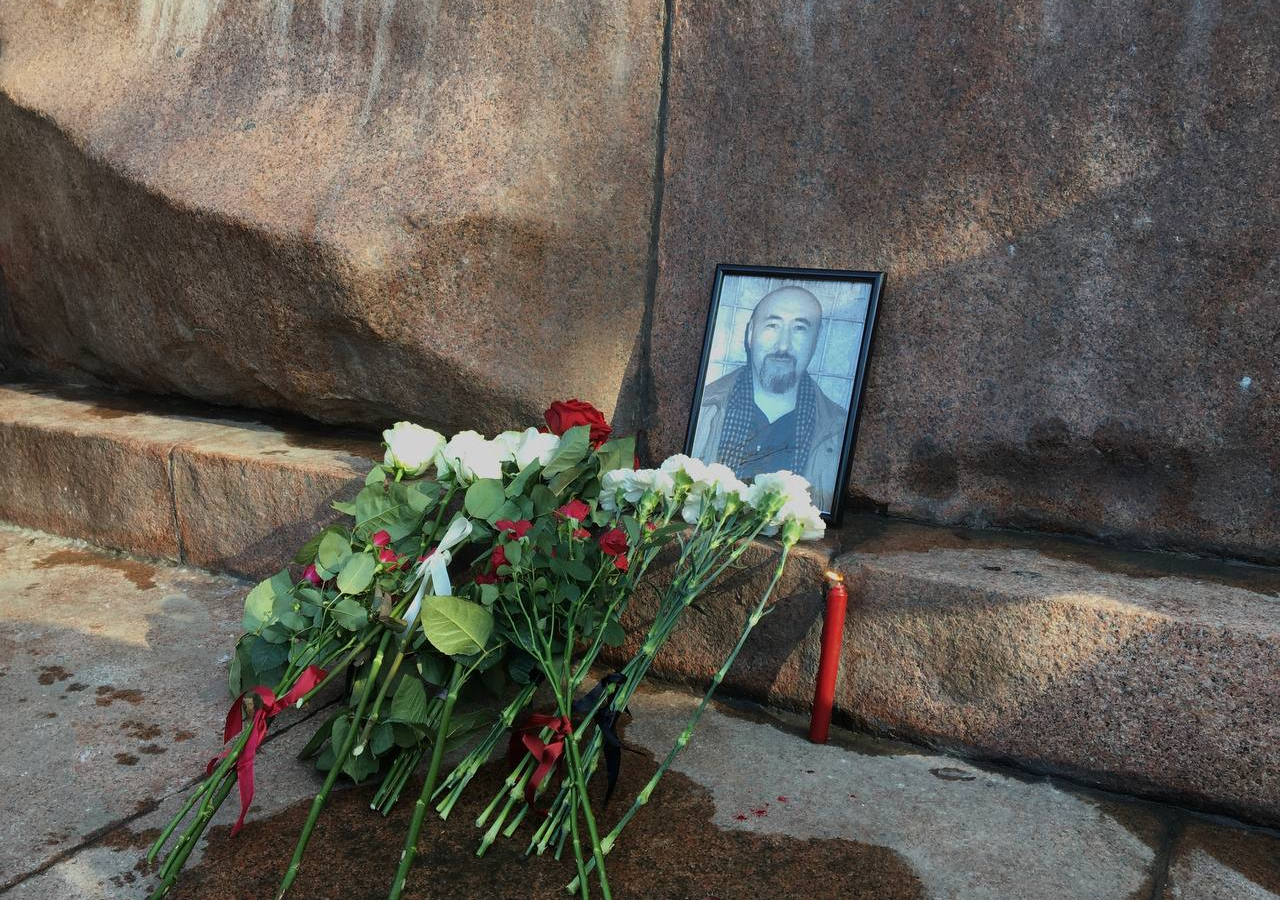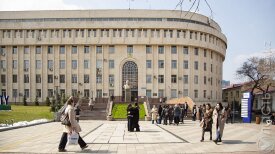Tomorrow, it will be one year since Aron Atabek, a dissident and Kazakhstan’s longest serving political prisoner, passed away in an Almaty clinic, after losing his final battle against a COVID-19 infection. He was old, frail, underweight, and had trouble speaking and moving his limbs. A stunning difference from the man who was arrested in 2006: A loud-spoken, well-built, and vigorous man. A photo circulated online showed Atabek’s shocking decay after 15 years of strict prison regime. He looked like a ghost.
For International Partnership for Human Rights (IPHR) and our partners who have monitored his case and advocated for his release for years, this was a stunning example of misuse of criminal prosecution to stifle dissent. He was released - but barely alive.
When local representatives of the UN’s Preventive Mechanism against Torture visited Atabek in prison in August 2021, they were extremely worried about his deteriorating health. Atabek himself attributed his serious health condition to years of torture and ill-treatment behind bars. A public outcry followed the news of his sickness, and some Kazakhstani MPs even called for an amnesty. By quickly changing Atabek’s punishment into a non-custodial sentence and releasing him on 1 October 2021, the authorities seemed to want to avoid a scandal similar to the one surrounding the tragic death of activist Dulat Agadil, who died in police custody in unclear circumstances in February 2020.
On 24 November 2021, less than two months after his release, Atabek passed away. The last weeks of his life were chaotic. Even after his release, his children were often barred from seeing him on different pretexts. At the very end he was being treated in a clinic, isolated from the outside world, as he slipped in and out of coma.
Atabek was never acquitted and cleared of the charges brought against him in 2006, and there has been no accountability for those responsible for the ill-treatment he suffered and which ultimately led to his premature death following his lengthy and harsh prison experience.
Atabek repeatedly reported being subjected to frequent torture and degrading treatment in prison. When his son visited him in 2014, Atabek told him that he had been beaten with truncheons on his head and body. He said that he was forced to undress during daily inspections of his cell and made to squat naked whilst being recorded on video. Human rights defenders, like Elena Semenova, documented the other ways in which Atabek was ill-treated in prison but despite these reports, the Kazakhstani authorities failed to conduct independent and thorough investigations and none of the prison staff were held accountable.
Kazakhstan’s international human rights obligations, which prohibit torture at all times, are frequently disregarded as perpetrators of prison torture enjoy impunity - not only in Atabek's case. In joint publications with Kazakhstan’s NGO Coalition against Torture - a key IPHR partner - we have shown that torture and ill-treatment are widespread in the country’s detention facilities and that the perpetrators often go unpunished, even in blatantly appalling cases. Ineffective investigation into torture allegations is a key problem, with law enforcement official often refusing to even register complaints of torture. And this is only part of the problem. According to official data, while 600-700 torture complaints are registered by the General Prosecutor’s Office every year, only a small percentage of these actually make it to court.
The problem of impunity for torture has been exacerbated in the aftermath of the January 2022 events. Many of the thousands of people who were detained during and after these tragic clashes are believed to have been subjected to torture and ill-treatment. Already in March 2022, the General Prosecutor’s Office stated that over 300 torture complaints had been filed in relation to “Bloody January”. The same office has also admitted that at least six people detained in connection with these events died due to “illegal interrogation methods” – i.e. torture. The real number of torture cases related to the January events is believed to be much higher than the number of complaints received by authorities.
As highlighted in a joint report that we issued together with the Coalition Against Torture on the international Anti-Torture Day in June 2022, many victims of torture or ill-treatment in January did not have access to complaint mechanisms while they were held in detention centres and in many cases medical workers did not record their injuries. If victims were able to submit complaints, these were not always registered. In other cases, victims were too scared to file or even withdrew their complaints for fear of retaliation or the lack of trust in the justice system. Also, investigations opened into torture complaints have not met international standards and the only court case against law enforcement officers charged with torture, which has begun to date, has been undermined by procedural violations.
Aron Atabek, one of Kazakhstan’s many victims of torture, died voiceless, as he predicted in a poem which he wrote in the 1980s.
For the sounds of my homeland.
My ancestors’ pattern will vanish,
Like water into sand.
I am a storyteller of immortality,
In Semitic and Etruscan tongues;
I am the dust of Turkic dialects,
Writing in Russian.
Many lives’ twisted fates,
Are lost inside me, mourning,
And I myself am a naked tangle of nerves,
Pulsating with verses.
When building a “New Kazakhstan”, President Kassym-Jomart Tokayev’s government must take effective measures to root out torture and end impunity. Torture and ill-treatment have no place in a country that claims to be on the path to democracy. These measures must include genuinely impartial and effective investigations into the widespread allegations of torture and ill-treatment related to the January events, and also an independent investigation into the events surrounding Aron Atabek’s treatment in prison, his loss of health, and death. All officials responsible for abuse, at all levels, must be prosecuted and appropriately punished.
Aron Atabek did not deserve to die the way he did. He is gone, but it is not too late to ensure justice for him.
Alva Omarova is a researcher for International Partnership for Human Rights. IPHR is an independent, non-governmental organization founded in 2008. Based in Brussels, IPHR works closely together with civil society groups from different countries to raise human rights concerns at the international level and promote respect for the rights of vulnerable communities. See more at: https://www.iphronline.org/en/
Читайте на русском здесь.
Поддержите журналистику, которой доверяют.








